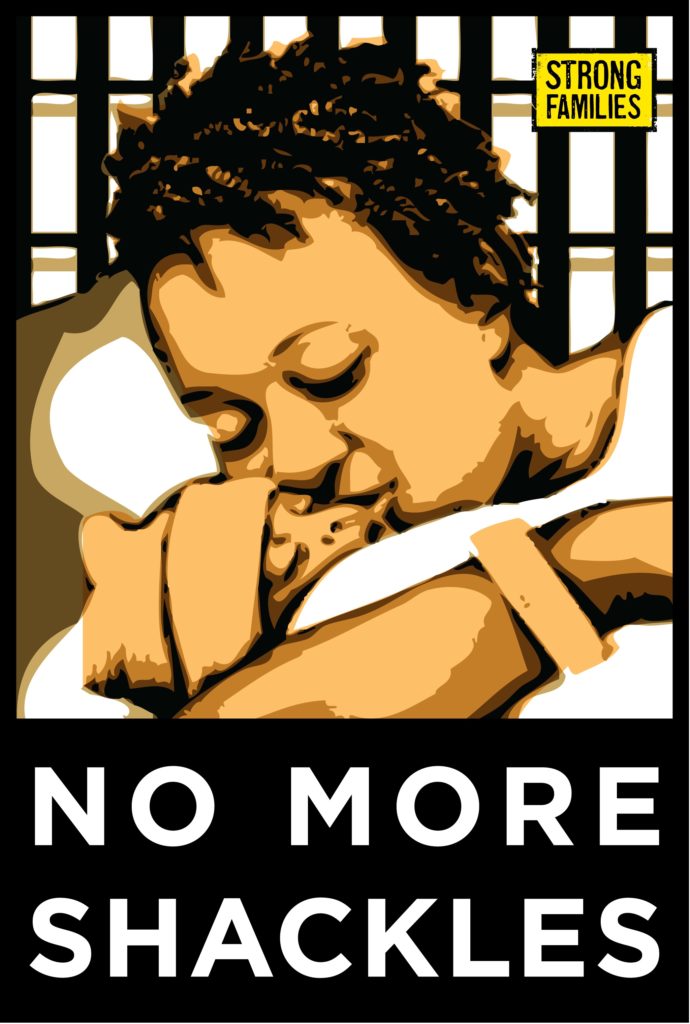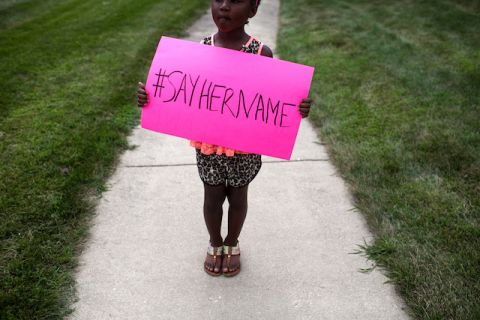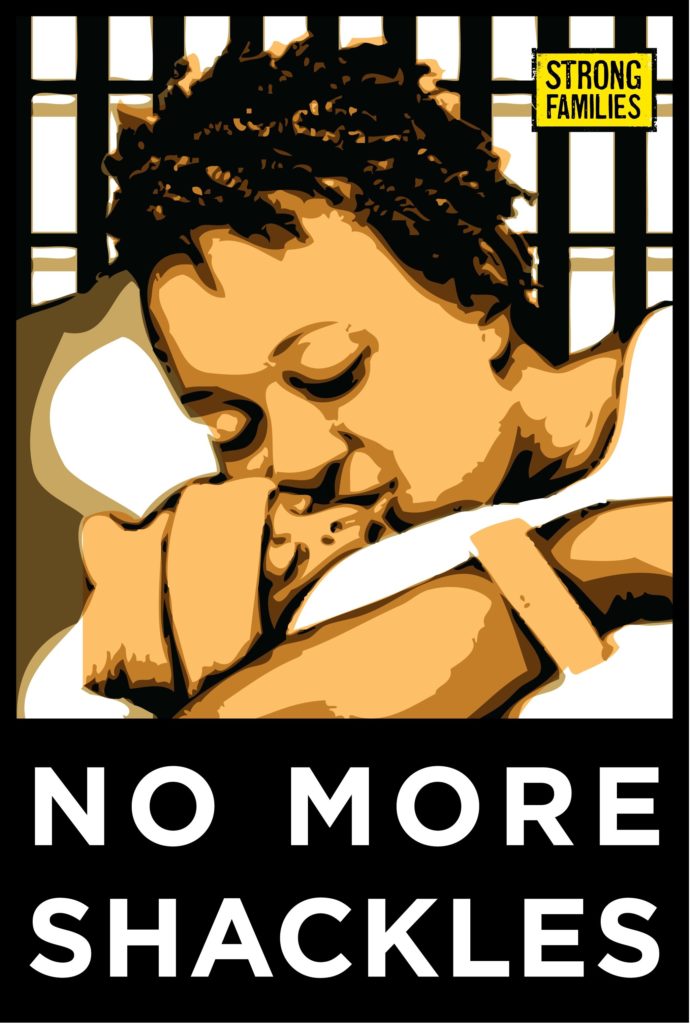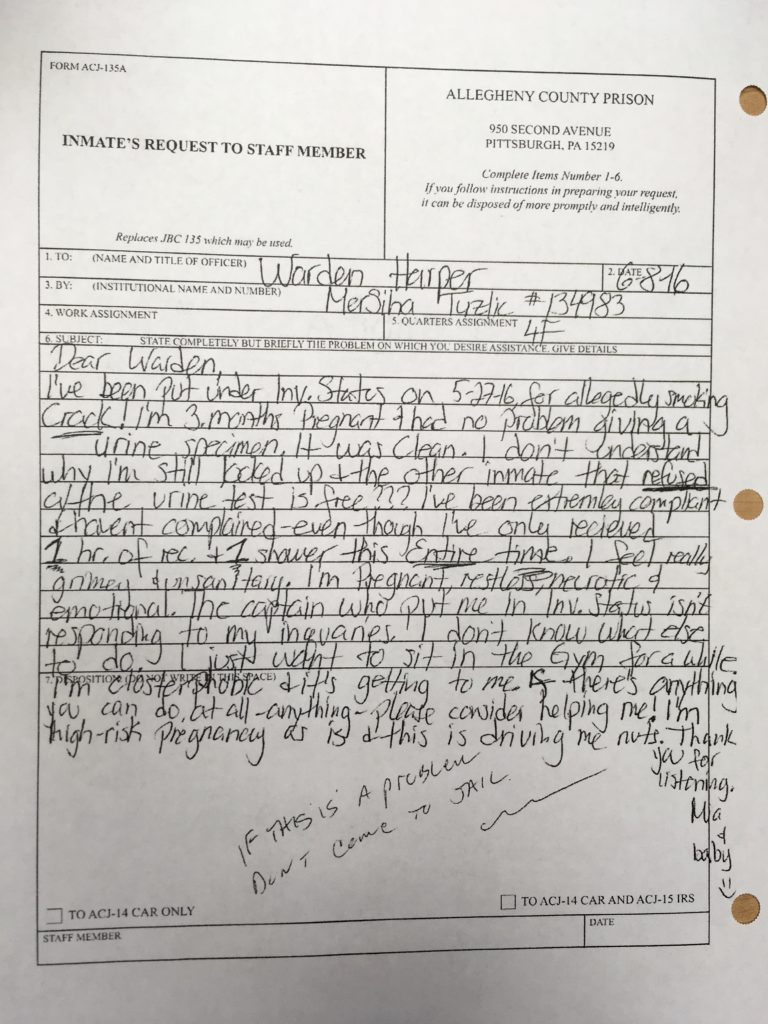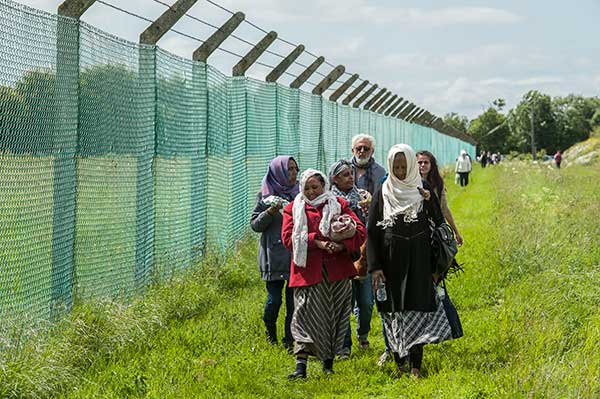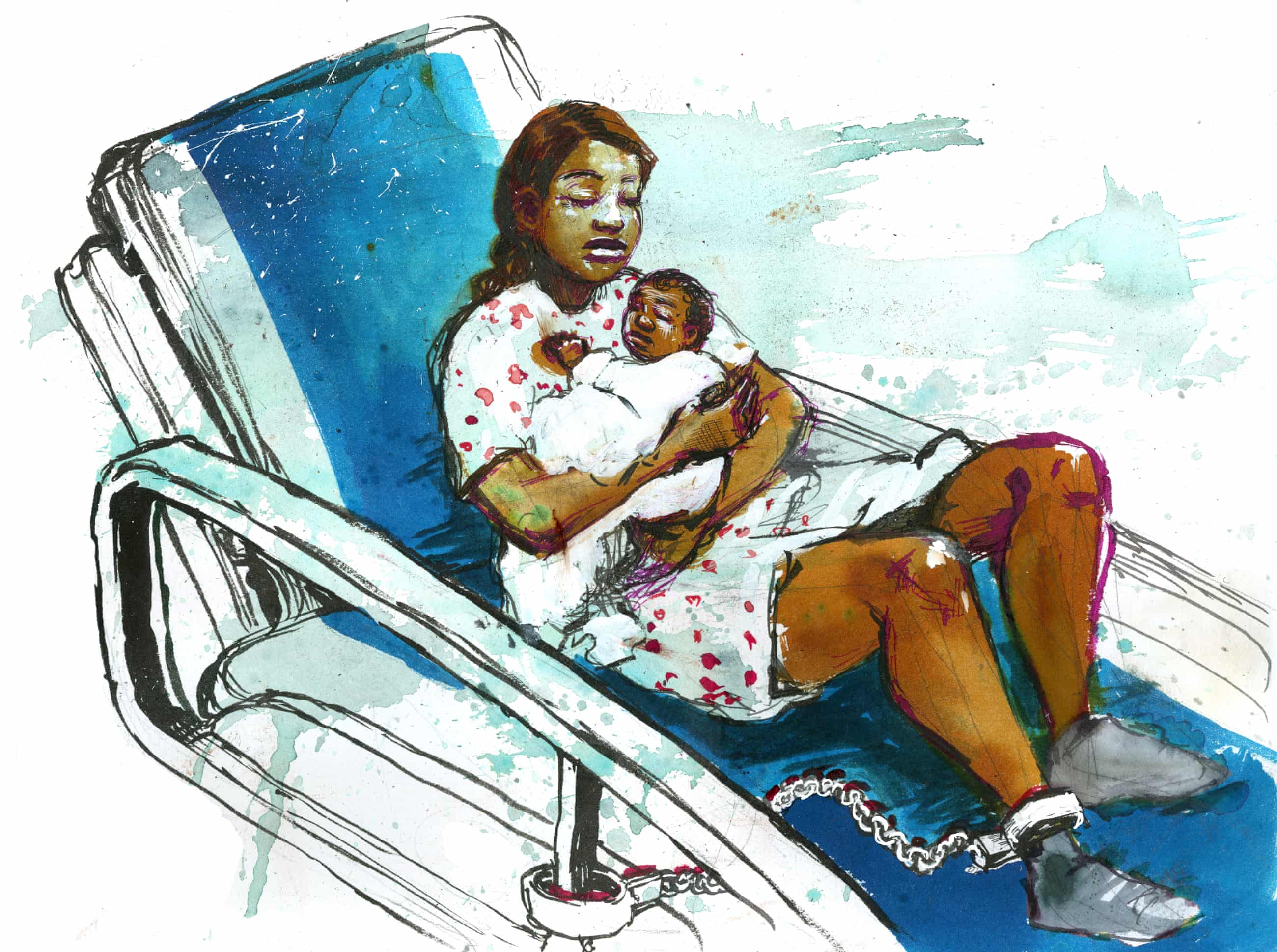
In New Jersey, a liberal government is grappling with its own sense of cruelty against incarcerated women. A suit filed in the US District Court for New Jersey claims that officers shackled the ankle of a 30-year-old woman identified as Jane Doe to her hospital bed while she was in labor. She was forced to wear the shackles even while she experienced painful contractions, kept her from turning on her side or moving at all to relieve the pain and—when nurses questioned the need for the shackles—officers refused to remove them and remained in the room even while doctors performed invasive medical procedures. She continued to be restrained while recovering from an emergency C-section and was also not allowed to walk the hallways as part of the healing process.
The use of shackles during childbirth was banned in the state as far back as 2017. Yet, as Jane Doe was sent to jail on a probation violation in 2018 after relapsing, she was shackled during childbirth, and afterwards.
The process of shackling, not only de-humanizing, takes a mental toll on women. In a 2017 report from the American Psychological Association, “Women subjected to restraint during childbirth report severe mental distress, depression, anguish, and trauma.” Women who are incarcerated tend to already have suffered more childhood traumas and shackling them during childbirth is likely to make conditions such as PTSD worse.
New Jersey, in the wake of Christie, has worked to make progressive reform to address the growing number of women who are incarcerated, including the issues related to shackling pregnant women while receiving medical care, but these bills fall short on the issues that are created from the process of criminalization to begin with. Jane Doe would not have had to file a lawsuit to allege an illegal shackling had she not been arrested to begin with. She, along with many New Jersey women, are part of a vicious cycle of recidivism where they will constantly be in contact with the criminal justice system. 95 percent of people incarcerated in state prison will be released, but 76.6 percent of them will be rearrested within five years. And in New Jersey, it will cost more to keep these people in prison that it would to give them the help that they need, whether it be financial help, drug rehabilitation, mental health access, etc. (each person in incarceration costs the state $60,000 a year).
Even the bills proposed by the state, while valiant in their efforts to address the crisis, only do so much as to alleviate the symptoms that are caused by incarceration. Assemblywoman Valerie Vainieri Huttle of Bergen County, proposed legislation to prohibit the use of restraints on pregnant incarcerated people during labor and immediately after childbirth, only in cases where the woman (who is in active labor, mind you), presents a substantial flight risk or some other “extraordinary medical or security circumstance dictates that restraints are needed to ensure the safety and security of the prisoner, the employees of the facility or medical facility, other prisoners, or the public”. Again, the extenuating circumstances are loopholes so that women, in active and painful labor, are still restrained during labor. I wonder at what point we’re going to acknowledge that women will not attempt to flee when they can barely stand.
Other bills have attempted to show that same compassion to incarcerated women, the fastest growing population in the criminal justice system, while reminding those women that they still are prisoners and are only given crumbs at the benevolence of the state at large.
 The Dignity for Incarcerated Primary Caretaker Parents Act, would ensure all incarcerated women in New Jersey receive free feminine hygiene products, expressly ban shackling and eliminate solitary confinement for expectant mothers. The bill would expand visiting hours and free phone calls for incarcerated mothers and would create a pilot program allowing overnight visits for mother who are able to meet certain requirements so that they can bond with their newborns.
The Dignity for Incarcerated Primary Caretaker Parents Act, would ensure all incarcerated women in New Jersey receive free feminine hygiene products, expressly ban shackling and eliminate solitary confinement for expectant mothers. The bill would expand visiting hours and free phone calls for incarcerated mothers and would create a pilot program allowing overnight visits for mother who are able to meet certain requirements so that they can bond with their newborns.While we should applause some compassion for incarcerated women, and incarcerated mothers, we need to keep fighting for a day where we meet a pregnant woman who has relapsed with compassion and public health solutions and not arrest or jail.
The Black Lives Matter Movement has brought to the surface a longstanding dehumanization of people at the hands of the criminal justice system; those officers didn’t care that Jane Doe was in active labor or recovering from a C-section. To the police, Jane Doe was another inmate that deserved to be handcuffed because she was outside of the prison walls, just like any other officer would do to an “inmate”.
Defunding the police means defunding the prisons means abolishing the prisons that house these women. $60,000 per incarcerated persons can correspond trauma informed therapists and love and safety.
Can we reimagine what $60,000 per incarcerated individual in the state of New Jersey (there are 39,000 people in various correctional facilities in the state alone)? Can we think about the various ways we can help those people instead of locking them up and subjecting them to a life of imprisonment and dehumanization? Can we literally comprehend how much help $2,340,000,000 (more than $2 billion!) can buy us? Can we imagine a day where there will be no more Jane Does? Where the lives of incarcerated pregnant women matter?
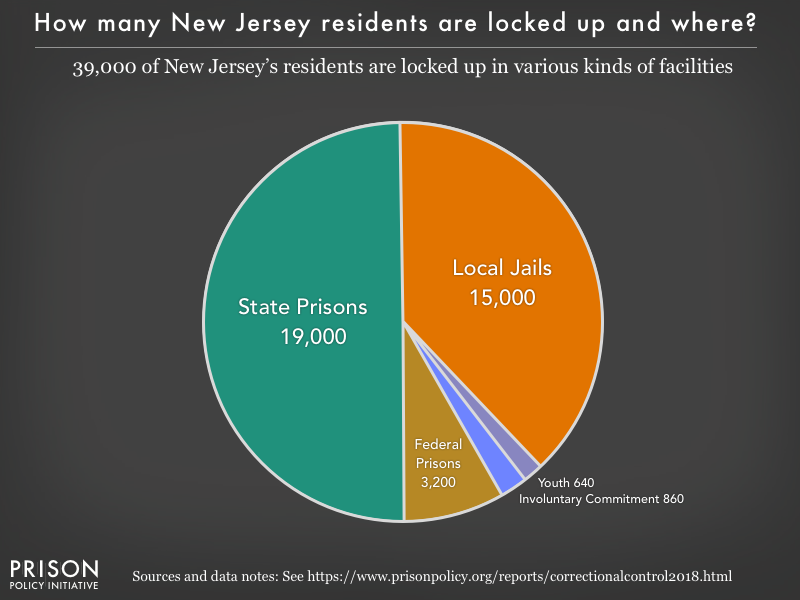
(Image Credit 1: The Guardian / Molly Crabapple) (Photo Credit: Facebook / Stop Shackling Pregnant Women) (Image Credit 2: Prison Policy Initiative)

